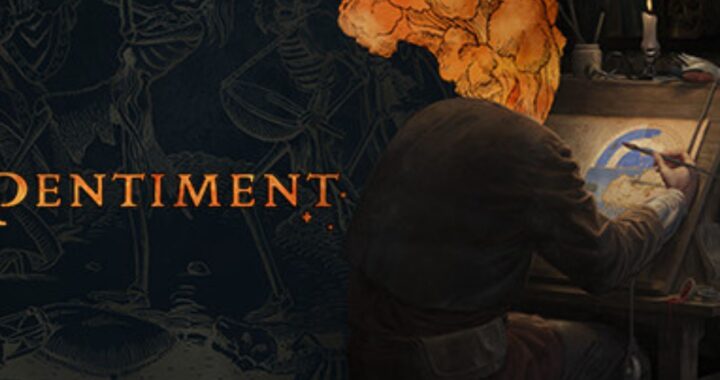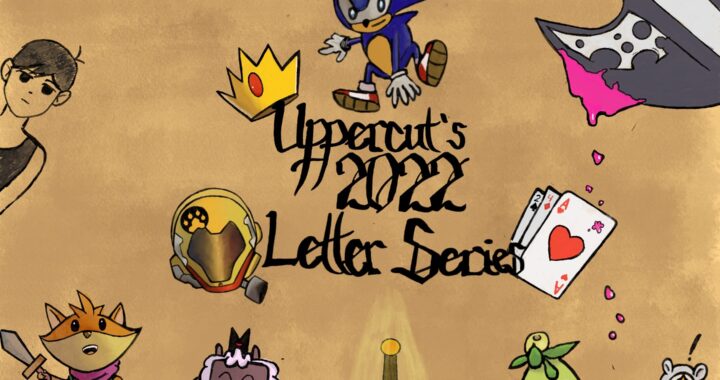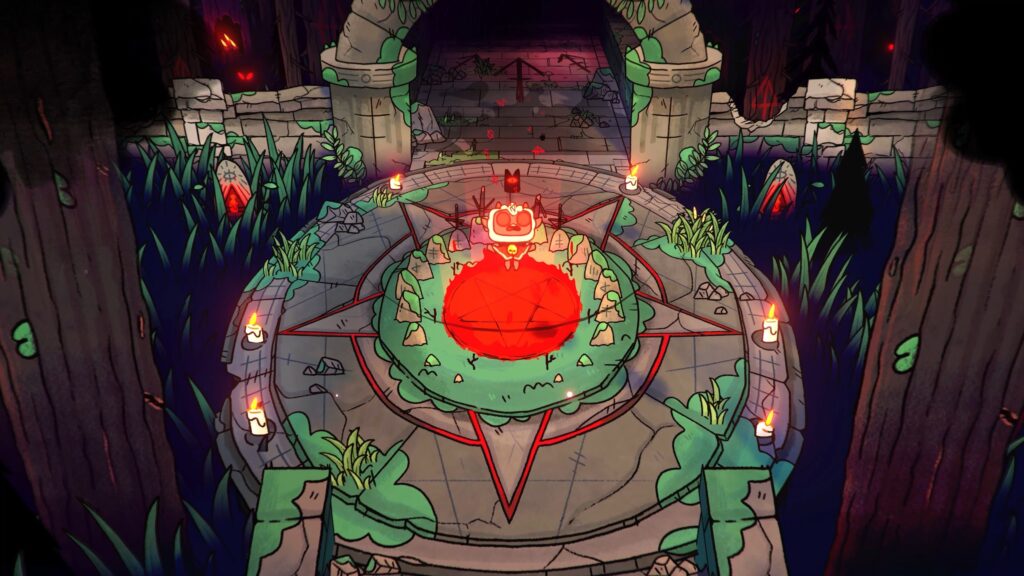
Image Source: Massive Monster
Cult of the Lamb and Self-Help Groups
At first sight I was absolutely fascinated with Cult of the Lamb. Looking across the Devolver Digital booth at PAX EAST 2022, the adorable lamb slaying baddies instantly stood out.
Unfortunately, the line for a demo deterred me from exploring at that time. This lamb, however, was filed away in my brain and from there on out I awaited details of a possible release date. When I finally was able to play Cult of the Lamb at launch, I was blown away by its mishmash of roguelike portions and management sim aspects, but I was even more taken aback by how it reminded me of many of the self help groups I had attended in the past, for better or worse.
Cult of the Lamb tasks you with raising a cult in the name of a god called The One Who Waits. He generously resurrected you after you were ritually sacrificed, and surely wants the best for you. It is implied that you will utilize your cult followers in any way that will help in your pursuit of empowering this deity. In short, there is an expectation that you will view your followers as a resource, as opposed to your companions. This may mean sacrificing non-believers and dissenters, using marriage as a means to keep followers in line, and treating your dead as fertilizer. Viewing the game in this manner was extremely difficult for me. Having experienced how supportive groups interacting can help each other to accomplish goals and get through struggles, I immediately saw the people I interacted with in self help groups in my followers.
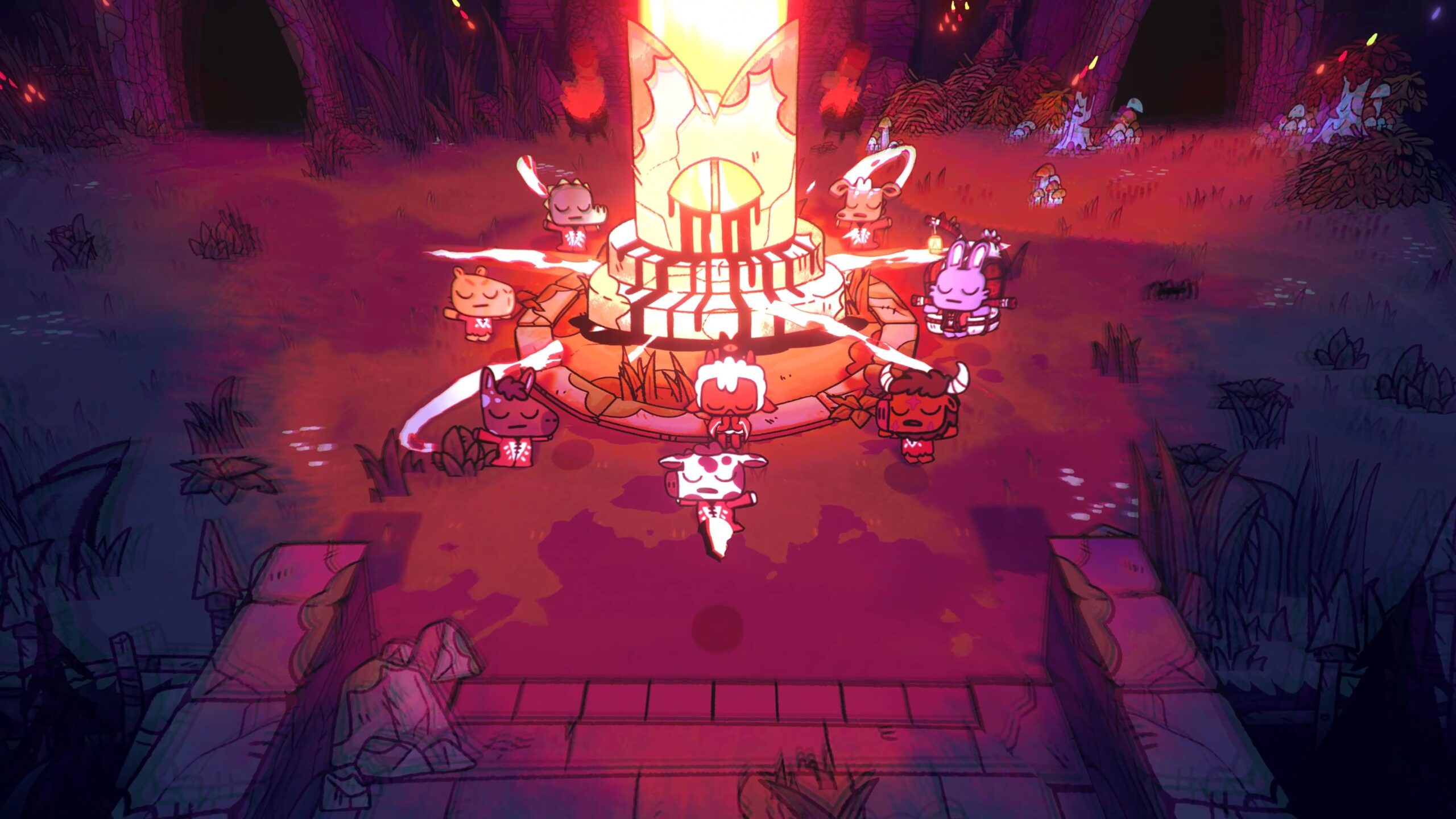
When I was struggling with substance use disorder and could not go a day without using opioids I believed I would never break the cycle. There were many sorts of self help groups I entered to find some sort of refuge from the daily hell I was experiencing. While not every self help group was successful for me, there certainly was one that I would say was crucial to my recovery and ability to function without substances today. I may not attend this group with the frequency I used to, but I couldn’t help but see similarities between the way my cult worked and the groups that helped me.
Now, I think it’s important to address the obvious; there is certainly some irony in comparing self help groups that are often referred to as “pretty culty” to a game about a cult. That would be far too easy of a comparison and the reasons for my connection of the two are much more personal and have great weight behind them. When looking at my lovely group of followers I merely viewed us as a team looking to accomplish a goal. In the game it was the fantastical quest of fighting off 4 deities in an attempt to please the one that resurrected a lamb, while in self help group experience we were all just trying to stay in recovery from substance use disorder.
As we all strove towards our goal in my adorable cult, I noticed each member had different nuances. Some followers are extra faithful and would love all ceremonies, while others were skeptics. Some had a fear of death that affected their faith when a fellow cult member died. Some followers were more predisposed to wanting to work, or take on missions, or interact with others. All of these reminded me of the different personalities I encountered in my early days of recovery upon entering a self help group full of people from different socioeconomic backgrounds, races, genders, and ideologies that were all there to achieve a similar outcome. And like in my cult, the more people I became close to, the more support I felt I had should something go awry. While in Cult of the Lamb I may be unlocking buffs, new buildings, or ceremonies to carry out, in life I was learning how to live a bit better in those beginning days of self help groups. Learning to live may sound dramatic, however tasks such as doing my laundry, filling up my gas tank with more than three dollars, and trusting in other people were all things I needed to relearn. Each of these felt like new skills I picked up from the community around me.
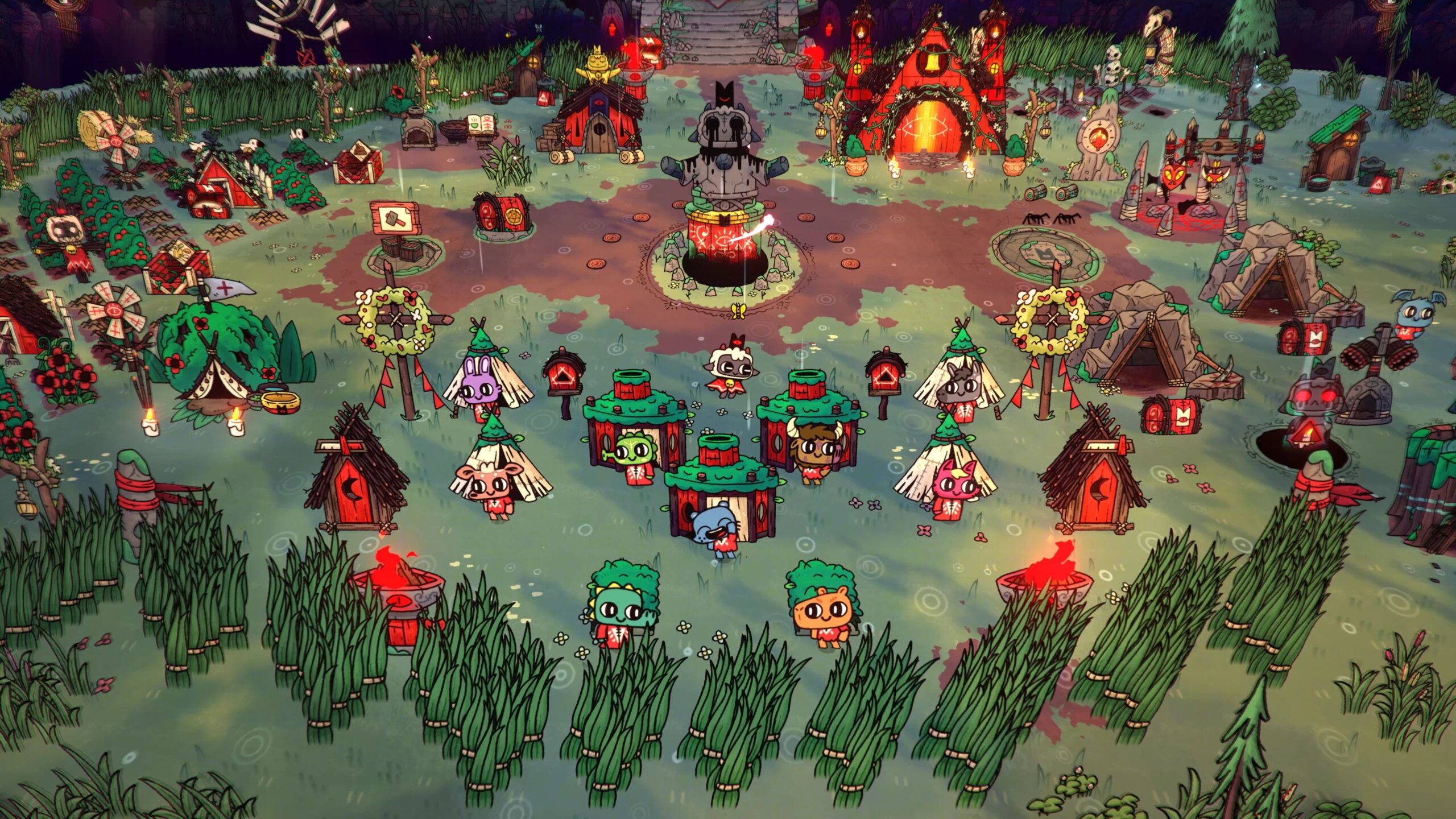
The rogue-like portions of Cult of the Lamb draw a parallel to my early recovery. When in the comfort of a group meeting with those trying to achieve the same goal, it was easy to remain in recovery. However, eventually I would have to venture out into the world, where temptation and the perils of the human condition existed. Each run of taking out enemies, gathering resources, and running into the occasional member of my flock harkened back to going to work, or a family event, or a social outing and having to do my best to remain in recovery when it may not have been the easiest thing to do.
And then there is the bowl of poop. Eventually a member of my flock approached me about how funny it would be to have someone eat a bowl of poop. This was a quest I could not bring myself to complete. Again, reflecting back to my life experience in self help groups there is always someone trying to make someone else eat a bowl of poop. Like in Cult of the Lamb, self help groups are full of imperfect people. The bowl of poop could be the spreading of a rumor, picking on someone to improve your own self-worth artificially, or my personal least favorite, the criticism of someone’s medication. In each case this serving of poop that is being thrust upon another just trying to improve their life disenchanted me to the idea of self help groups.
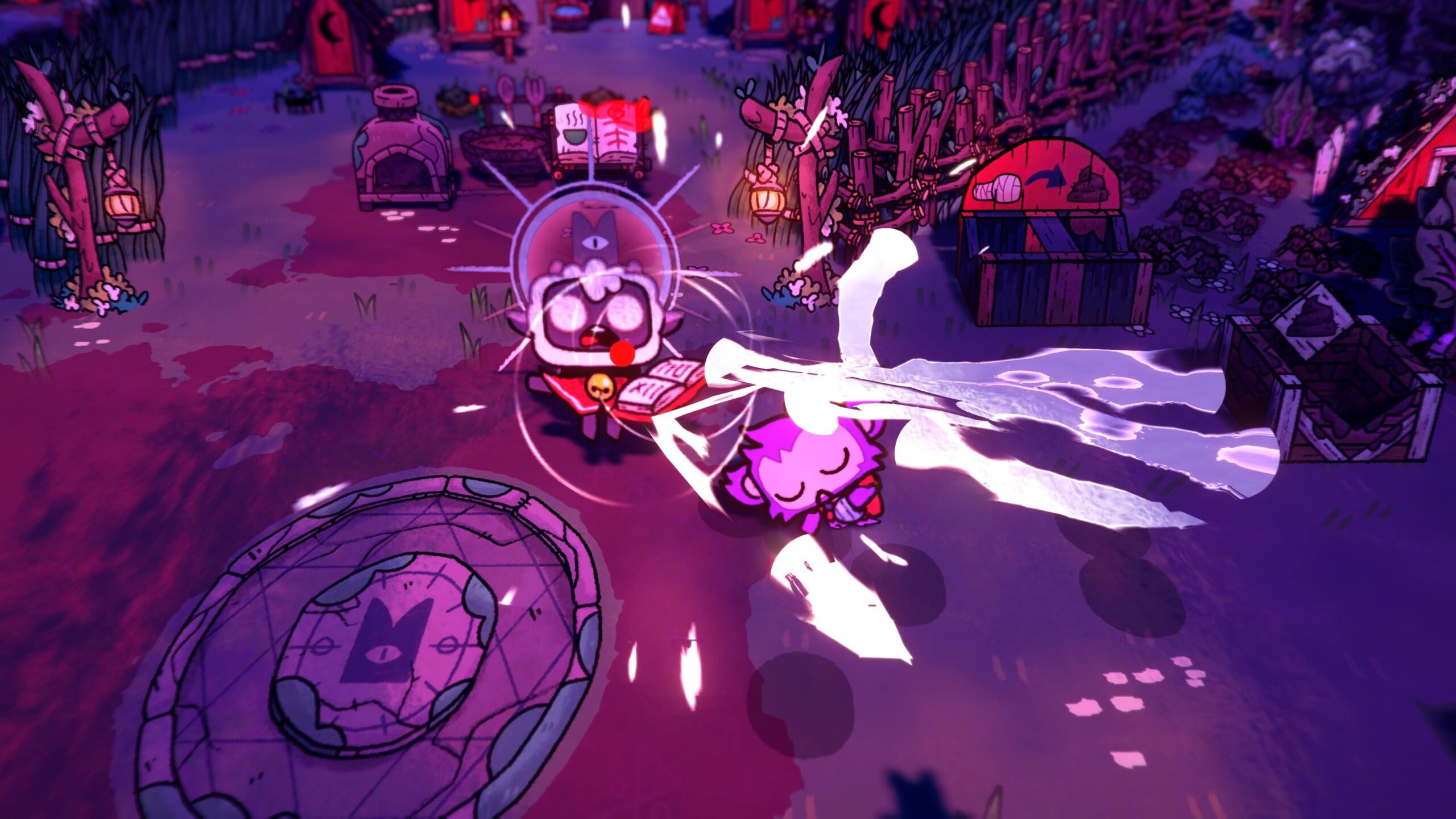
As my flock grew in Cult of the Lamb, the inevitable started happening. The lovable followers I had amassed began to die, whether it be from sickness, old age, or my adversaries claiming their lives. The cult members I had chosen to distinctly name and attach meaning to were no more. As a result I began using the default names instead of choosing my own. This led me to realizing another sobering similarity to self help groups I’ve been part of. Unfortunately, people struggling with substance use disorder often lose their battle and pass away. This was one of the toughest realizations of my early recovery. As time passed, it became harder and harder to let people in as my fear of losing them caused me to be more detached. The lack of assigning names reminded me of how I have grown more guarded over time.
I’m happy Cult of the Lamb provided me with an experience where I could reflect back on my earlier days of recovery and the importance and imperfections of self help groups in my life. In the end it helped me to realize that we’re all just trying to do our best, whether that’s slaying deities in the name of the god that resurrected you or just trying to live another day in recovery.
If you like what we do here at Uppercut, consider supporting us on Patreon. Supporters at the $5+ tiers get access to written content early.

